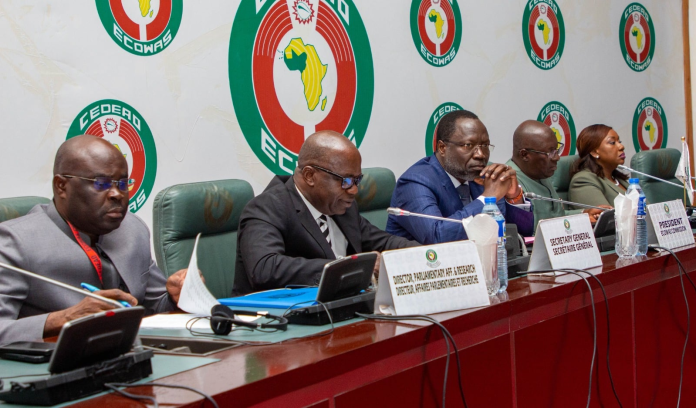

The Economic and Monetary Community of West African States (ECOWAS) recently conducted a sensitization tour in The Gambia to emphasize the significance of the regional identification document known as the ECOWAS National Biometric ID Card (ENBIC).
According to a press release, during the visit, the ECOWAS Commission, through its Directorate of Free Movements and Immigration, informed immigration officers and transborder commercial motorists in The Gambia of the significance of the ENBIC in driving intraregional trade and integration.
A representative of the Commission, Albert Siaw-Boateng, used the meeting to notify citizens of The Gambia, the government, and non-state stakeholders of the need to guarantee the free movement of persons and services within the ECOWAS. The official also utilized the two-day meeting to explain how to obtain the regional biometric identification.
Siaw-Boateng acknowledged the government of The Gambia’s efforts in adopting the ENBIC and stated that he believes additional efforts and collaboration will facilitate the achievement of their stated goals.
Musa Sawaneh, an economist with the Gambia’s Ministry of Trade, Industry, and Regional Integration and Empowerment, defined the biometric ID card as a crucial instrument for regional development in his remarks. According to Sawaneh, the ID will not only permit unrestricted movement across the frontiers of ECOWAS member states, but it will also aid in the management of border closure delays and security issues.
The ENBIC is a biometric credential authorized by ECOWAS chiefs of state in 2014 as a means of facilitating travel and commerce transactions among the bloc’s member states.
To date, only six of the fifteen ECOWAS members have issued the card, and the ECOWAS Commission has recently urged states that have yet to take action to do so.
In the meantime, ECOWAS also operates WURI, a regional ID card initiative financed by the World Bank that the bloc believes will boost commercial transactions and financial inclusion.


